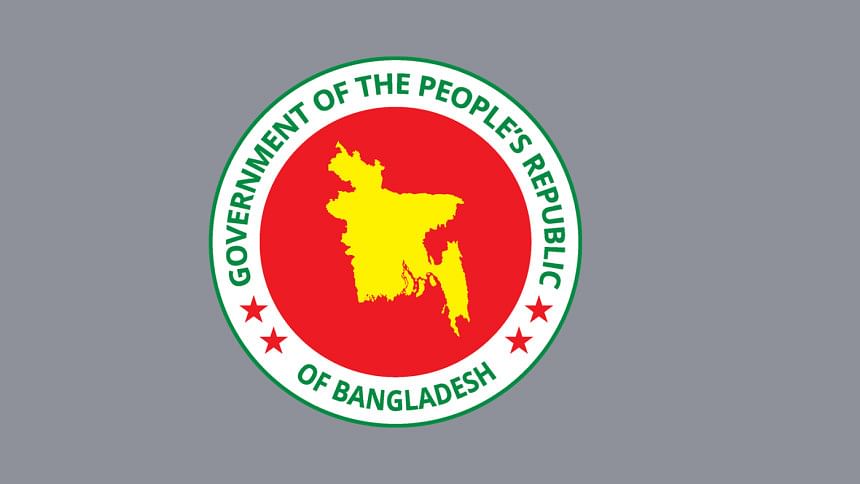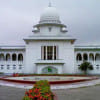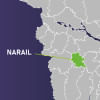Govt revises definition of freedom fighter

The government last night promulgated an ordinance redefining the term "freedom fighter" (Bir Muktijoddha) and introducing three new categories.
The new categories are Muktijuddher Shohojogi (associate of the Liberation War); Muktijoddha Poribar (family of a freedom fighter); and Muktijuddher Shohojogi Poribar (family of a Liberation War associate).
The National Freedom Fighters Council (Amendment) Ordinance-2025 amended the previous National Freedom Fighters Council Act-2022.
The definition of "associate of the Liberation War" specifically includes all Members of the National Assembly (MNAs) and Members of the Provincial Assembly (MPAs) who were affiliated with the wartime provisional government of Bangladesh (Mujibnagar Government) and later considered members of the constituent assembly.
Bangabandhu Sheikh Mujibur Rahman, Syed Nazrul Islam, Tajuddin Ahmad, and more than 400 others were members of the constituent assembly and used to be recognised as freedom fighters.
The ordinance, however, included the Mujibnagar government in the definition of "Bir Muktijoddha".
Bir Muktijoddha (freedom fighter)
According to the ordinance, the new definition of a Bir Muktijoddha reads:
"Bir Muktijoddha is someone who, between March 26 and December 16, 1971, either prepared for war and received training within villages across the country, or crossed the border into India to enroll in various training camps with the aim of participating in the Liberation War. These individuals actively took part in the war against the occupying and invading Pakistani armed forces and their local collaborators -- Razakars, Al-Badr, Al-Shams, the then Muslim League, Jamaat-e-Islami, Nezame Islam, and the Peace Committee -- towards achieving Bangladesh's independence.
Those recognised as freedom fighters must be civilians who were of the minimum age as determined by the government during the time of war. Also included as freedom fighters are members of the armed forces, East Pakistan Rifles (EPR), police, the Mujibnagar government and its recognised forces, naval commandos, Kilo Force, and Ansar members.
All women who were subjected to torture by the Pakistani forces and their collaborators (Biranganas); and all doctors, nurses, and medical assistants who provided treatment to wounded freedom fighters in field hospitals during the war will continue to be regarded as freedom fighters.
Muktijuddher Shohojogi (associate of the Liberation War)
The ordinance defines an "associate of the Liberation War" as follows: "Individuals who, between March 26 and December 16, 1971, resided either within the country or abroad and played a role in inspiring freedom fighters, organising support, accelerating the war effort, and contributing to the achievement of Bangladesh's independence through organisational leadership, global opinion building, securing diplomatic support, and strengthening psychological resolve."
These associates include the Bangladeshi professionals who were abroad during the Liberation War and made significant contributions in favour of the war, and Bangladeshi citizens who actively engaged in shaping international public opinion.
The persons who served under the Mujibnagar government as officials, employees, diplomats, or who were appointed as doctors, nurses, or assistants by the government will also be considered associates.
All MNAs and MPAs affiliated with the Mujibnagar government who were later recognised as members of the Constituent Assembly will also fall under this category.
Besides, all artists and personnel of the Swadhin Bangla Betar Kendra, and all Bangladeshi journalists who worked in support of the war both at home and abroad and members of the Swadhin Bangla football team will now be considered associates of the Liberation War.
They would previously be considered freedom fighters.
The ordinance defines a "freedom fighter's family" as: "The spouse, son, daughter, father, or mother of a recognised freedom fighter."
The family of a Liberation War associate is defined as: "The spouse, son, daughter, father, or mother of a recognized associate of the Liberation War."
The ordinance also makes a slight revision to the definition of the Liberation War itself. It now states:
"The Liberation War refers to the armed struggle, conducted between March 26 and December 16, 1971, by the people of Bangladesh to establish a sovereign democratic state founded on equality, human dignity, and social justice, against the occupying and invading Pakistani armed forces and their collaborators -- Razakars, Al-Badr, Al-Shams, the then Muslim League, Jamaat-e-Islami, Nezame Islam, and the Peace Committee."
The new definition of Liberation War drops the name of Bangabandhu Sheikh Mujibur Rahman. The previous one mentioned that the war was waged responding to Bangabandhu's call for independence.
Freedom fighter and Liberation War researcher Afsan Chowdhury said the move was entirely a bureaucratic decision.
"We have seen this since 1972 -- every time a new government comes to power, they create a new list of freedom fighters. There are personal benefits involved," he told the newspaper late last night.
"People will not accept this. The Liberation War will remain as it always has been -- in the hearts of the general people."
Talking to The Daily Star, valiant freedom fighter Fazlur Rahman, also an adviser to BNP Chairperson Khaleda Zia, said, "They [the government] do not uphold the spirit of the Liberation War ... It does not matter to me what types of ordinances they issue. The Liberation War will forever remain in its rightful place."


 For all latest news, follow The Daily Star's Google News channel.
For all latest news, follow The Daily Star's Google News channel. 








Comments